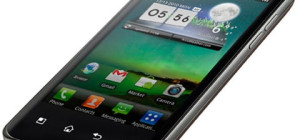
Since the digital revolution began in earnest, technology companies have been developing new forms of convenience tech to enhance consumers’ lives. In the twenty-first century, this makes for some significant short-cuts that were unthinkable before the advent of the internet, smartphones that support hundreds of independent apps, or computerized systems that make everyday tasks a breeze. In order to make the most of this continuing shift towards the digitization of menial tasks or the technological helping hands that get us what we want, when we want, read through the following tips and enjoy the myriad benefits of our increasingly digital society.
Food
Once upon a time, feeding oneself would be a case of long queues in the grocery store, or expensive meals in local restaurants. Americans wasted hundreds of hours of their lives shopping for the ingredients to make meals. If you look at the present food industry, it’s not hard to see the ways in which digital technology has cut down the time spent buying and making food, saving consumers time to spend on more productive activities.
Amazon’s worker-free store is just the beginning of this ongoing revolution: you’re now able to skip queues with automated checkouts in stores, or by ordering your whole shopping cart online. Recent app-based delivery services to leap onto the scene get your favorite food delivered to your door hassle-free, while sites such as JustEat list all the local eateries in your area so that you can make the most informed decision on your fast food choices whenever you feel hungry at home. Look out for ‘The Internet of Things’ developing quick-ordering for food you’re running low on, which will become the norm in the next 10 years.
Finance
A comparable shift has taken place in the realm of finance, with far more power being placed in the hands of consumers even in the wake of the 2008 financial crash. It’s largely down to digitization: with the realization that folks are less likely to visit their banks in branch – and more likely to check out their financial data online – banks have been heavily reinvesting in online and mobile technologies in an attempt to carve out some market advantage as we shift inexorably towards the digital.
It’s usually new ‘challenger’ banks that have taken the initiative here: see more about discovery cards that give unique benefits to members that are driven by this shift to mobile, digital banking. Besides your personal banking, the rise of apps that track your spending, allowing you to budget more efficiently, has meant that individuals have far better control over the way they spend and invest their money than ever before; it’s helping hands like these that are leading the digital revolution in how the market spends -and saves – its money.
Health
As average life expectancies rise, so does the ability of technological breakthroughs to both service our medical needs – in surgery and diagnosis algorithms – and warm us when we might be suffering a period of ill-health. One of the recent new app types to break through into this market is the menstrual cycle tracker, which helps women trace their periods through the cycle. Empowering apps such as this can also track the amount of exercise you do, or recommend certain types of food to introduce into your diet.
These apps are largely data-driven, and its data that doctors once analyzed in situ as patients attended an appointment. While doctors are fantastic repositories of medical knowledge, some forms of smart AI have come to make ultra-quick diagnoses that serve as points of reference to the knowledge of medical professionals with decades of experience. Consumers should anticipate a shift towards a more algorithmic, machine-learning diagnosis and treatment service in the future, helping the public prevent the worsening of illnesses by recognizing symptoms at the source.
Home
While some luddites and technophobes will be resistant to what they see as an invasion of technology into the home, there is a somewhat inevitable shift taking place in which we’ll see more and more of the smart technology currently on the market incorporated into appliances in the home. There’s plenty already out there: heating systems that you can operate remotely; remote-controlled windows and blinds; even auto-order buttons for when you run out of detergent. Every new piece of technology, linked to the internet, is designed to cut the time you spend running errands and the cost of your home’s upkeep.
Of course, in the last five years, a part of this technology has already become fairly commonplace in early-adopter homes: that of the Google Home and Amazon Alexa products that respond to your voice to either give you information or get products sent to your door when you realize you’re running low on pretty much anything. These helping hands at home may seem a luxury addition for millennials quick on the uptake of new digital goods but have proven incredibly useful for the elderly who are unable or unwilling to make frequent trips to the store.
Entertainment
The way we choose to entertain ourselves during our downtime has changed dramatically in the last twenty years, which saw the advent of the internet in homes across the country. Where the TV was once king, with listings dictating what we watched and when we watched it, the likes of Netflix and Amazon Prime are the new kids on the block changing the industry towards on-demand shows that cater towards the convenience culture that the digital revolution has entailed.
Beyond watching TV shows and films with the flick of a button – or, even, the call of your voice – we’re now able to read hundreds of books from light and portable devices such as the Amazon Kindle, and play games – often for free – on the move from our ultra-developed smartphones. The digital revolution has made entertaining ourselves as convenient and pleasurable as possible while reducing prices for consumers.
It’s clear that digital technology has permeated into all walks of life, largely reducing costs for companies and consumer alike, and making life more convenient so that we’re freed up to pursue our interests without interruption or errand – so harness its potential and save yourself time and money going into the future.




![Top CEOs under 30-The Young Guns Of Technology [Infographic]](https://lerablog.org/wp-content/plugins/wp-thumbie/timthumb.php?src=http://lerablog.org/wp-content/uploads/2015/03/the-young-guns-of-technology.jpg&w=300&h=140&zc=1)


